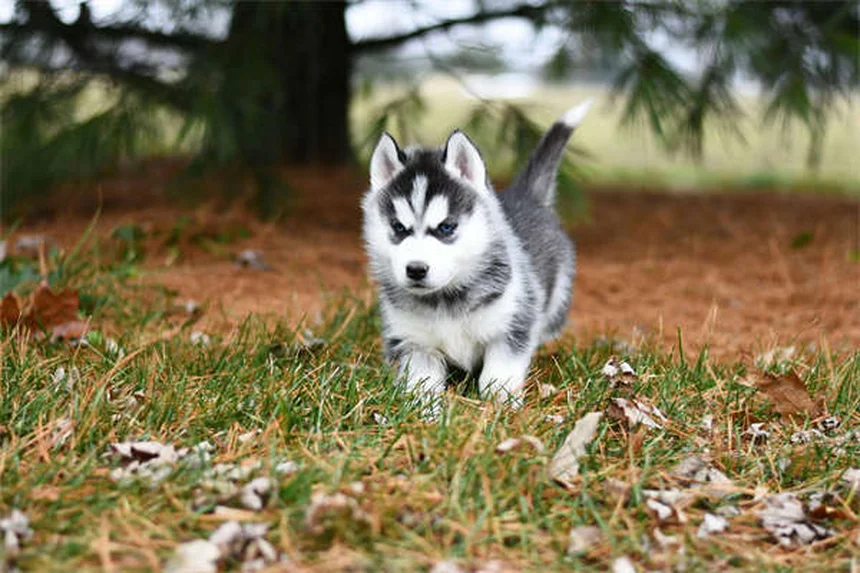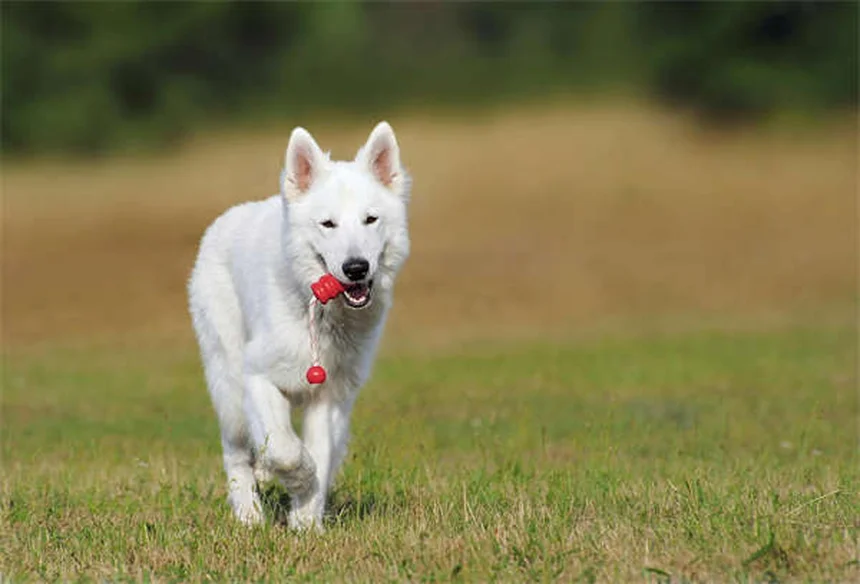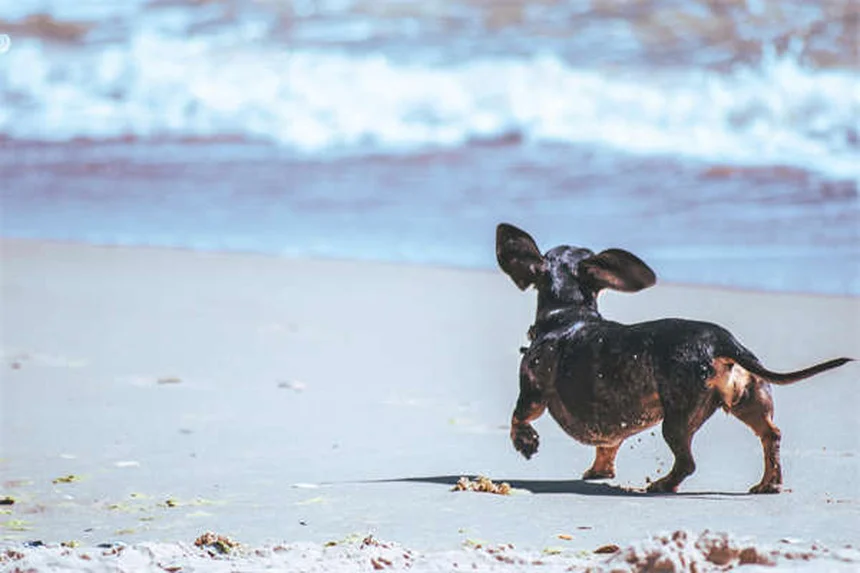Wondering how to keep your pets safe during 4th of July celebrations? The answer is simple: preparation is key! As someone who's worked with pets for over a decade, I can tell you that Independence Day is actually one of the most dangerous holidays for our four-legged companions. More pets go missing on July 4th than any other day of the year - but with these proven safety strategies, you can ensure your furry family members stay happy and secure.Here's the deal: while we're enjoying fireworks and backyard barbecues, our pets are often terrified by the loud noises and overwhelmed by all the activity. Dogs hear sounds at four times the intensity we do, making fireworks absolutely traumatic for them. But don't worry - I'll walk you through exactly what you need to do to create a safe haven for your pet and prevent common holiday hazards. From setting up the perfect indoor retreat to avoiding toxic foods, we've got you covered!
E.g. :Cat Seizures: Symptoms, Causes & What to Do Immediately
- 1、Keeping Your Furry Friends Safe This Independence Day
- 2、Creating a Safe Indoor Environment
- 3、Preparing for the Noise
- 4、Identification: Your Safety Net
- 5、Food and Drink Dangers
- 6、Other Holiday Hazards
- 7、Final Thoughts for a Paw-some Holiday
- 8、Beyond the Basics: Additional Pet Safety Considerations
- 9、Alternative Celebrations for Pet Lovers
- 10、Emergency Preparedness
- 11、Long-Term Solutions for Noise Anxiety
- 12、Creating Positive Associations
- 13、FAQs
Keeping Your Furry Friends Safe This Independence Day
Why July 4th Can Be Tough for Pets
You know what's funny? While we're out there enjoying fireworks and backyard barbecues, our pets might be having the worst day of their year. More pets go missing on July 4th than any other day - and that's not a statistic we want to be part of, right?
Let me paint you a picture: imagine being a dog with hearing 4x more sensitive than humans, suddenly hearing what sounds like bombs going off everywhere. Not so fun now, is it? That's why we need to step up as pet parents and create a safe environment for our four-legged family members.
Creating a Safe Indoor Environment
The Great Indoors: Your Pet's Safe Haven
Here's a golden rule: if fireworks are happening outside, your pet should be inside. But not just anywhere inside - we need to think strategically about where they'll feel most secure.
Did you know dogs can't sweat like we do? They only have sweat glands in their paws, which makes them way more likely to overheat. That's why keeping them in a cool, quiet room is crucial. The bathroom or laundry room often works great because they usually don't have windows and the tile floors stay cooler.
 Photos provided by pixabay
Photos provided by pixabay
Setting Up the Perfect Safe Space
Think about what makes your pet feel cozy. For my dog Max, it's his favorite blanket and that ugly stuffed squirrel he's had since puppyhood. Here's what you'll want to include:
- Their favorite bed or blanket
- Fresh water (maybe even with ice cubes!)
- Some puzzle toys or long-lasting chews
- White noise or calming music
Pro tip: Adaptil for dogs or Feliway for cats can work wonders. These pheromone diffusers help create a sense of security - kind of like how lavender might relax you after a long day.
Preparing for the Noise
When Boom Becomes Bummer
Ever seen your pet react to thunder? That's probably how they'll react to fireworks. Some dogs shake like a leaf, others try to dig through the floor - my neighbor's golden retriever once chewed through a door!
If your pet has shown noise sensitivity before, don't wait until July 3rd to prepare. Here's a comparison of some options to help anxious pets:
| Option | Best For | When to Start |
|---|---|---|
| Prescription meds | Severe anxiety | 1-2 weeks before |
| Calming chews | Mild nervousness | Few days before |
| ThunderShirt | All anxiety levels | Can use day-of |
Training Before the Big Day
Here's something cool you can try: play firework sounds at low volume while giving treats, gradually increasing the volume over weeks. This counter-conditioning can help your pet associate the scary noises with good things.
But let's be real - if your dog is like my first lab who would literally climb walls during storms, you might need professional help. Your vet can recommend the best approach for your pet's specific needs.
Identification: Your Safety Net
 Photos provided by pixabay
Photos provided by pixabay
Setting Up the Perfect Safe Space
Here's a scary thought: what if, despite all your precautions, your pet still gets out? That's why identification is non-negotiable. I recommend the "belt and suspenders" approach - multiple forms of ID.
Your pet's collar should have:
- Your current phone number
- An ID tag with at least two contact methods
- Consider an AirTag or similar tracker
The Power of Microchipping
Did you know that only about 58% of microchipped pets have current registration info? That's like having an unlisted phone number! Make sure your chip info is updated annually - it takes 5 minutes online and could save your pet's life.
Here's a quick checklist for ID prep:
- Take clear photos of your pet from multiple angles
- Ensure collar tags are legible and secure
- Confirm microchip info is current
- Have local animal control numbers saved in your phone
Food and Drink Dangers
The BBQ Temptation
I get it - when Fido gives you those puppy dog eyes as you're eating a burger, it's hard to resist. But here's the thing: that one "harmless" bite could land you at the emergency vet.
Why take the risk when you can prepare special holiday treats instead? Some safe options include:
- Plain cooked chicken (no bones, no seasoning)
- Frozen watermelon cubes
- Carrot sticks
- Commercial pet treats
 Photos provided by pixabay
Photos provided by pixabay
Setting Up the Perfect Safe Space
You'd never hand your dog a beer, right? But many people don't realize that alcohol dangers go beyond intentional consumption. Spilled drinks, unattended cups, even perfume or hand sanitizer can be risky.
Alcohol affects pets much more strongly than humans. Just a little can cause:
- Vomiting
- Difficulty breathing
- Coma
- Even death
Other Holiday Hazards
Glow Sticks and Citronella
Those glowing necklaces might look fun, but if your pet chews one, you're in for a messy night. The liquid inside causes excessive drooling and agitation - not exactly festive!
And citronella? It's basically kryptonite for pets. Whether in candles, plants, or sprays, it can cause:
- Skin irritation
- Breathing problems
- Vomiting if ingested
Heat and Fire Safety
Here's a question: do you know the signs of heatstroke in pets? If not, you're not alone - but you need to learn them fast. Heavy panting, bright red gums, and staggering are all red flags.
And about that grill: did you know the grease runoff can cause pancreatitis? Keep pets at least 3 feet away from all cooking areas. Better yet, assign someone to be the "pet monitor" during parties to enforce safety zones.
Final Thoughts for a Paw-some Holiday
Your Holiday Game Plan
Now that you're armed with all this info, let's make a quick action plan:
- Set up the safe room today
- Update ID info this week
- Talk to your vet if needed
- Prepare special pet-safe treats
- Assign safety monitors for the party
Remember What Matters
At the end of the day, we want our pets to feel safe and loved - even when the world outside is exploding with celebration. With some preparation and common sense, we can all enjoy the holiday while keeping our furry family members secure.
One last pro tip: if you really want to go above and beyond, consider hosting a "quiet Fourth" celebration. Board games, indoor movies with the volume up to mask outside noises, and lots of pet cuddles can make for an unexpectedly wonderful holiday!
Beyond the Basics: Additional Pet Safety Considerations
The Hidden Dangers of Firework Debris
You might not think about this, but after the fireworks show comes the cleanup - and that's when curious pets can get into trouble. Firework remnants contain toxic chemicals that can poison your pet if ingested.
Let me tell you about my friend's beagle who ate some leftover sparkler wires last year - $800 vet bill later, we all learned our lesson. The next morning, make sure to:
- Walk your yard thoroughly before letting pets out
- Check under bushes and in grass where debris might hide
- Keep a close eye on your pet for 24 hours after celebrations
Neighborhood Watch for Pets
Here's something cool you can do - organize a pet safety group chat with your neighbors. When I did this on my block, we discovered that Mrs. Johnson's garage was the perfect panic room for anxious dogs during fireworks.
We take turns checking on each other's pets when someone has to be out, and share updates about unexpected firework displays. It's like having extra eyes on your fur babies when you can't be there yourself!
Alternative Celebrations for Pet Lovers
Silent Firework Displays
Did you know some communities now offer low-noise or silent fireworks? These produce beautiful visual effects without the earth-shaking booms. While not completely silent, they're about as loud as someone clapping their hands.
Check your local event listings - more cities are adopting these pet-friendly alternatives. Last year, our town's silent display drew twice as many families with pets as the traditional show!
Daytime Pet Parades
Why wait until dark to celebrate? Many communities host patriotic pet parades where dogs (and sometimes cats!) can strut their stuff in cute costumes before the scary noises begin.
These events typically include:
- Best dressed contests
- Pet-friendly obstacle courses
- Vendors selling safe pet treats
- Early end times before fireworks start
Emergency Preparedness
Building a Pet First Aid Kit
You've got bandaids for the kids, but what about Fido? A well-stocked pet first aid kit should include:
| Item | Purpose |
|---|---|
| Self-cling bandages | Won't stick to fur |
| Hydrogen peroxide | For inducing vomiting (vet-approved only!) |
| Digital thermometer | Normal temp is 100-102.5°F for dogs |
| Emergency vet contacts | Including 24-hour clinics |
Know Your Emergency Signs
Here's a question that might surprise you: would you recognize if your pet was in distress? Many owners miss subtle signs until it's too late.
Watch for these emergency indicators:
- Pale or blue-tinged gums
- Uncoordinated movements
- Repeated vomiting or diarrhea
- Sudden collapse
Long-Term Solutions for Noise Anxiety
Behavioral Therapy Options
If your pet struggles every year, maybe it's time to consider professional help. Certified animal behaviorists can work wonders with systematic desensitization programs.
My cousin's shepherd mix went from trembling wreck to calm companion after 6 months of therapy. Now they actually enjoy watching fireworks from a safe distance!
Anxiety Medication Myths
Some folks worry that anxiety meds will turn their pet into a zombie. But modern veterinary medications are precise and safe when properly prescribed.
The key is working with your vet to find the right solution. Sometimes a mild sedative is exactly what your pet needs to get through a tough night without trauma.
Creating Positive Associations
Treat Games During Noise
Here's a fun trick: turn scary noises into treat time! When fireworks start, break out the high-value rewards you only use for special occasions.
In my house, we play "find it" with hot dog pieces during loud noises. The dogs are so focused on the game, they barely notice the booms outside!
Post-Firework Relaxation
After the last firework fades, don't just go to bed - help your pet unwind. A gentle massage, some quiet time with their favorite toy, or even just sitting together can reinforce that the scary part is over.
I like to end the night with a calming routine: dim lights, soft music, and maybe a special dental chew. It signals to my pups that all is well in their world again.
E.g. :July 4 safety | American Veterinary Medical Association
FAQs
Q: How can I keep my dog calm during fireworks?
A: Keeping your dog calm during fireworks requires a multi-step approach. First, create a safe space in an interior room without windows - like a bathroom or basement. Add their favorite bed, some chew toys, and consider using a pheromone diffuser like Adaptil. For dogs with severe anxiety, talk to your vet about prescription medications (start these 1-2 weeks before the holiday). We've found that playing white noise or calming music can help mask the firework sounds. And here's a pro tip: try a ThunderShirt - these snug-fitting vests provide comforting pressure that can reduce anxiety by up to 80% in some dogs!
Q: What foods should I avoid giving my pet on July 4th?
A: When it comes to 4th of July foods, there are several dangerous items you'll want to keep away from pets. Onions, garlic, grapes, and chocolate are all toxic to dogs and cats. Fatty foods like hamburgers and hot dogs can cause pancreatitis - a painful and potentially deadly condition. Corn cobs and meat bones pose choking hazards and can cause intestinal blockages. Instead of sharing your plate, prepare some pet-safe treats ahead of time like plain cooked chicken or frozen watermelon cubes. Remember, alcohol in any form is extremely dangerous for pets - even licking up spilled drinks can cause serious health issues.
Q: Is it safe to take my dog to a fireworks show?
A: Absolutely not - we strongly recommend leaving pets at home during fireworks displays. The loud noises can be terrifying for animals, and many dogs will panic and try to escape. Even if your dog seems calm normally, the combination of crowds, unfamiliar locations, and explosive sounds can trigger anxiety. Instead, keep your pet securely indoors with the TV or radio playing to help mask the noise. If you must be outside with your pet, ensure they're wearing a secure harness (not just a collar) and have up-to-date ID tags. But honestly? The safest place for pets on July 4th is definitely at home in their safe space.
Q: What should I do if my pet goes missing on July 4th?
A: If your pet goes missing, act quickly but methodically. First, check all nearby hiding spots - scared pets often hide in small, dark places. Contact local animal shelters and veterinary clinics immediately, and file a lost pet report. Post on neighborhood apps like Nextdoor with clear photos and your contact information. Having your pet microchipped (with current registration info) dramatically increases the chances of being reunited. We recommend creating "lost pet" flyers in advance with your pet's photo and your phone number - that way you're prepared if the worst happens. Most importantly, don't give up hope - many pets are found days or even weeks after going missing.
Q: Are glow sticks and citronella dangerous for pets?
A: Yes, both glow sticks and citronella products can be hazardous to pets. Glow sticks contain dibutyl phthalate which, while not technically toxic, causes intense drooling and agitation when chewed. Citronella (in candles, sprays, or plants) can cause skin irritation, breathing problems, and vomiting if ingested. We've seen cases where pets knocked over citronella torches, resulting in burns and respiratory distress. For your pet's safety, keep all glow products out of reach and use pet-safe alternatives to citronella for mosquito control. If your pet does come into contact with these substances, rinse the affected area with water and call your vet if symptoms persist.

